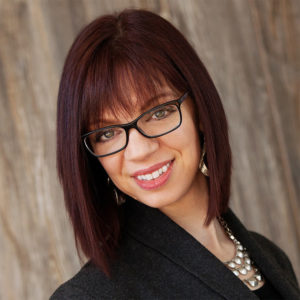Jesus healed political divisions

Daily Scripture
Luke 6:12-16, Acts 1:12-14
Luke 6
12 During that time, Jesus went out to the mountain to pray, and he prayed to God all night long. 13 At daybreak, he called together his disciples. He chose twelve of them whom he called apostles: 14 Simon, whom he named Peter; his brother Andrew; James; John; Philip; Bartholomew; 15 Matthew; Thomas; James the son of Alphaeus; Simon, who was called a zealot; 16 Judas the son of James; and Judas Iscariot, who became a traitor.
Acts 1
12 Then they returned to Jerusalem from the Mount of Olives, which is near Jerusalem—a sabbath day’s journey away. 13 When they entered the city, they went to the upstairs room where they were staying. Peter, John, James, and Andrew; Philip and Thomas; Bartholomew and Matthew; James, Alphaeus’ son; Simon the zealot; and Judas, James’ son— 14 all were united in their devotion to prayer, along with some women, including Mary the mother of Jesus, and his brothers.
Daily Reflection & Prayer
When Jesus launched his public ministry, he had a key decision to make at the very beginning. Who would he equip to join him in his ministry? What types of people would be able to carry on and expand the mission long after he was gone? Today’s passages named the disciples, or apostles, that Jesus chose. In a politically divided Israel, the list included Matthew, a tax collector for Rome, and Simon, a zealot (a group that despised any who helped Rome).
-
We don’t have a full biography of Jesus’ disciples. We know the group included fishermen, a tax collector, and a Zealot. Fishermen caught and sold fish and paid Roman taxes. People hated the tax collectors for the occupying Roman Empire as traitors. Zealots tried to kill Roman soldiers if possible and dreamed of a military defeat of Roman troops. Jesus chose people with wildly different outlooks. What can we learn from the people Jesus chose? Why do you think Jesus chose such different people?
-
Jesus knew that unity of purpose, grounded in prayer, could and would heal political and cultural divisions. He also knew that diversity was a strength for his mission, not a weakness. When have you worked towards a common goal with people that were very different than you? How can Jesus’ ability to unite diverse people in a common purpose help you be effective next time you’re working with others you may or may not agree with?
Prayer
Lord Jesus, you valued diversity and healed political and cultural differences. Help me to see differences with others as something that is positive rather than something to be avoided. Amen.
GPS Insights

Janelle Gregory
Janelle Gregory serves on the Resurrection staff as Human Resources Lead Director. Janelle finds that her heart is constantly wrestling with the truth that she needs a Savior, and the times when she's at her very best are when she's just too tired to put up a fight.
TikTok is great for mindless entertainment. I could swipe for hours. But here’s what you have to know about using the app: it’s going to give you what it thinks you want to watch, and it’s not going to give you what it thinks you don’t want to watch. This means that if you’re using TikTok as your primary source of news, you’re likely only hearing information from a similar point of view. If you think one political party is superior, TikTok is not going to feed you videos that would offer a different insight. TikTok’s main motivation isn’t that you’re hearing diverse thoughts, it only cares if you’re staying on the app and seeing the occasional advertisement. This means that your thoughts are never challenged, you’re only hearing what you want to hear, and your viewpoints are just being reinforced. This creates an enjoyable experience (I like to be right), but it may not be the healthiest.
Sadly, I think this can also happen in our faith lives. I’m certainly guilty of it. We surround ourselves with like voices. We scoff at those who think differently. We might even question whether or not they are “real Christians.” I would be lying if I said that thought never entered my mind. We don’t need an app to select our faith content, we do that on our own. The teachings we hear, the books we read, the conversations we partake in generally support what we already think. I’m not saying that what we’re hearing is all wrong, but I highly doubt that what we’re hearing or what we believe is 100% correct. We can’t all be right. And that’s okay.
The body of Christ is a beautiful and messy collaboration of a variety of thoughts, beliefs, and personal experiences with the same God. It’s wild and wonderful, and it’s not homogenous. The differing viewpoints might seem like sharp points causing us to feel uncomfortable or even hurt. But they may also be carving our belief-system in such a way that brings us ever closer to God.
